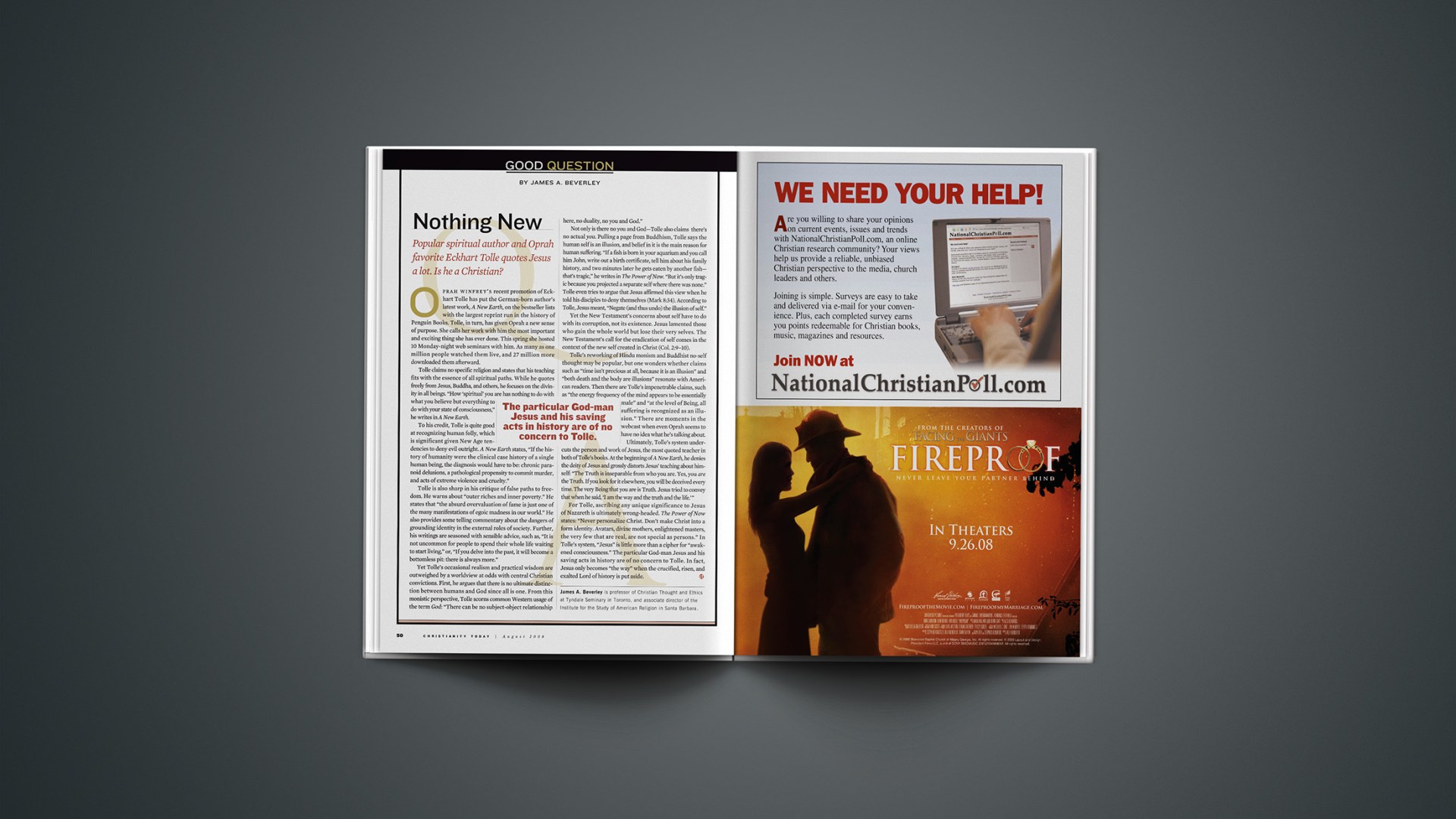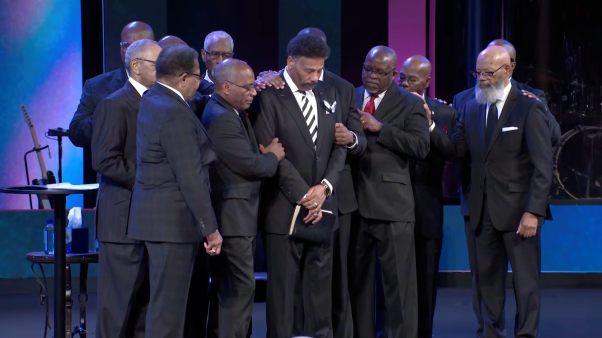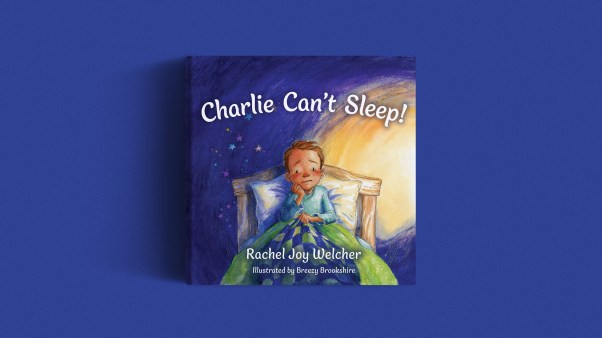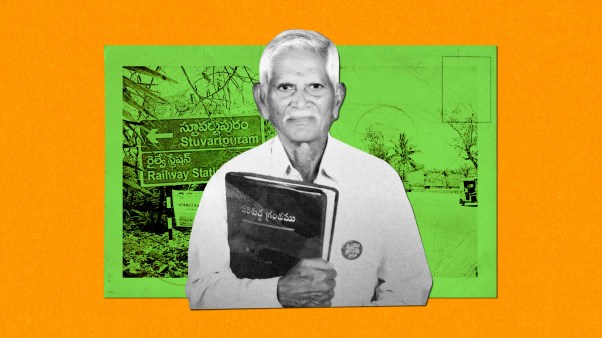Oprah winfrey’s recent promotion of Eckhart Tolle has put the German-born author’s latest work, A New Earth, on the bestseller lists with the largest reprint run in the history of Penguin Books. Tolle, in turn, has given Oprah a new sense of purpose. She calls her work with him the most important and exciting thing she has ever done. This spring she hosted 10 Monday-night web seminars with him. As many as one million people watched them live, and 27 million more downloaded them afterward.
Tolle claims no specific religion and states that his teaching fits with the essence of all spiritual paths. While he quotes freely from Jesus, Buddha, and others, he focuses on the divinity in all beings. “How ‘spiritual’ you are has nothing to do with what you believe but everything to do with your state of consciousness,” he writes in A New Earth.
To his credit, Tolle is quite good at recognizing human folly, which is significant given New Age tendencies to deny evil outright. A New Earth states, “If the history of humanity were the clinical case history of a single human being, the diagnosis would have to be: chronic paranoid delusions, a pathological propensity to commit murder, and acts of extreme violence and cruelty.”
Tolle is also sharp in his critique of false paths to freedom. He warns about “outer riches and inner poverty.” He states that “the absurd overvaluation of fame is just one of the many manifestations of egoic madness in our world.” He also provides some telling commentary about the dangers of grounding identity in the external roles of society. Further, his writings are seasoned with sensible advice, such as, “It is not uncommon for people to spend their whole life waiting to start living,” or, “If you delve into the past, it will become a bottomless pit: there is always more.”
Yet Tolle’s occasional realism and practical wisdom are outweighed by a worldview at odds with central Christian convictions. First, he argues that there is no ultimate distinction between humans and God since all is one. From this monistic perspective, Tolle scorns common Western usage of the term God: “There can be no subject-object relationship here, no duality, no you and God.”
Not only is there no you and God—Tolle also claims there’s no actual you. Pulling a page from Buddhism, Tolle says the human self is an illusion, and belief in it is the main reason for human suffering. “If a fish is born in your aquarium and you call him John, write out a birth certificate, tell him about his family history, and two minutes later he gets eaten by another fish—that’s tragic,” he writes in The Power of Now. “But it’s only tragic because you projected a separate self where there was none.” Tolle even tries to argue that Jesus affirmed this view when he told his disciples to deny themselves (Mark 8:34). According to Tolle, Jesus meant, “Negate (and thus undo) the illusion of self.”
Yet the New Testament’s concerns about self have to do with its corruption, not its existence. Jesus lamented those who gain the whole world but lose their very selves. The New Testament’s call for the eradication of self comes in the context of the new self created in Christ (Col. 2:9-10).
Tolle’s reworking of Hindu monism and Buddhist no-self thought may be popular, but one wonders whether claims such as “time isn’t precious at all, because it is an illusion” and “both death and the body are illusions” resonate with American readers. Then there are Tolle’s impenetrable claims, such as “the energy frequency of the mind appears to be essentially male” and “at the level of Being, all suffering is recognized as an illusion.” There are moments in the webcast when even Oprah seems to have no idea what he’s talking about.
Ultimately, Tolle’s system undercuts the person and work of Jesus, the most quoted teacher in both of Tolle’s books. At the beginning of A New Earth, he denies the deity of Jesus and grossly distorts Jesus’ teaching about himself: “The Truth is inseparable from who you are. Yes, you are the Truth. If you look for it elsewhere, you will be deceived every time. The very Being that you are is Truth. Jesus tried to convey that when he said, ‘I am the way and the truth and the life.'”
For Tolle, ascribing any unique significance to Jesus of Nazareth is ultimately wrong-headed. The Power of Now states: “Never personalize Christ. Don’t make Christ into a form identity. Avatars, divine mothers, enlightened masters, the very few that are real, are not special as persons.” In Tolle’s system, “Jesus” is little more than a cipher for “awakened consciousness.” The particular God-man Jesus and his saving acts in history are of no concern to Tolle. In fact, Jesus only becomes “the way” when the crucified, risen, and exalted Lord of history is put aside.
James A. Beverley is professor of Christian Thought and Ethics at Tyndale Seminary in Toronto, and associate director of the Institute for the Study of American Religion in Santa Barbara.
Copyright © 2008 Christianity Today. Click for reprint information.
Related Elsewhere:
Previous Good Questions are available on our site.
On his website, Eckhart Tolle answers a reader’s question on his view of the New Testament.
USA Today has an article on Oprah’s involvement with Tolle, as well as an excerpt from the book.
Christianity Today published a cover story on Oprah in 2002.










